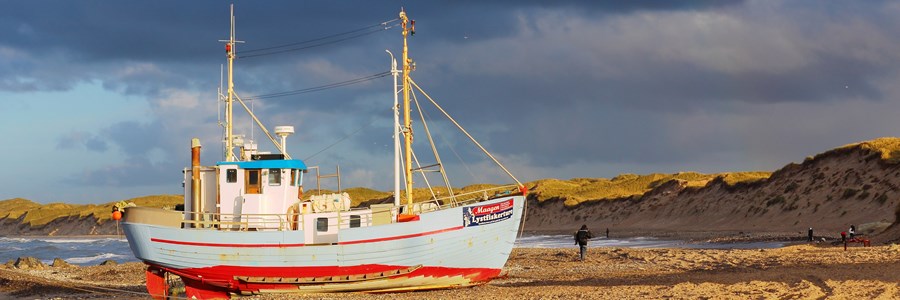L'industrie est indignée par une recommandation non fondée de clôturer 30% des zones marines à l'échelle mondiale à la pêche

Europêche, l'organe représentatif du secteur de la pêche de l'UE et l'EAPO, l'organisme européen représentant les organisations de producteurs, ont exprimé leur indignation face à la décision prise par l'Union internationale pour la conservation de la nature (UICN) de fixer une cible ambitieuse dans le but de clôture de 30% de toutes les zones marines issues des activités extractives d'ici 2030.
The International Union for Conservation of Nature (IUCN) meets every four years at the IUCN World Conservation Congress to recommend a set of environmental and conservation priorities for future years. During this latest Congress held in Hawaii, from 1st - 10th September 2016, the IUCN adopted a series of non-binding commitments to recommend to governments and other relevant international bodies such as FAO or the European Union.
The IUCN Congress is composed of environmental ministries and conservation NGOs who decide on issues relating to general biodiversity conservation in the absence of relevant fisheries sector stakeholders who are the primary target of these policies. This body takes decisions on fisheries issues whilst disregarding the huge socio-economic impacts that this 30% area closure would have on coastal communities and food security.
The fishing sector argues that fisheries is actually one of the most affected sectors by these recommendations which don't take into account other impacts such as pollution and marine mining industries (including oil and gas). Moreover, the decision taken by the IUCN is not based on any broad consensus of the scientific community and disregards the unpleasant fact that a large proportion of MPAs already established are 'paper parks' with zero efficiency in meeting their objectives. On the contrary, some scientists present at the Congress highlighted that there is little proof that the 30% closure would bring about any major benefit to biodiversity and have objected very strongly to the proposal since it goes against efforts made by MPA proponents during the last decade to involve coastal communities in decision-making.
The fishing bodies also believe that any proposal which greatly impacts any economic sector should be accompanied by a thorough impact assessment from an environmental, social, economic and food security perspective, which was not the case in this decision. This would be the only tool which would highlight the consequences of the problems and allows states to decide whether to take action based on accurate, objective, comprehensive and non-discriminatory information.
The fishing sector also highlights that closing off parts of the ocean from extractive use would actually conflict with other the UN Sustainable Development Goals such as increasing food security and reducing poverty; both of which require the use of the ocean. Closing 30% of all coastal areas would be disastrous in the developing world, where coastal communities have no social safety nets and no unemployment schemes.
Javier Garat, President of Europêche stated: "No-take zones (marine reserves) have become, in the eyes of many scientists, NGOs and lay-people, a solution for the overexploitation of fish populations. However, before we close off any area to extractive activities such as fishing we must first ask ourselves what are we protecting and why. MPAs are a tool, not an objective so in order for these closures to be successful, their existence has to be justified. They therefore must be science-based, well monitored, effective and not simply established to reach a quota. As we know, fish populations do not respect boundaries and closing off an area to fishing will only displace vessels to neighbouring areas with unintended consequences on management. Many MPAs actually fail because their planning is rarely integrated as part of broader marine spatial planning and ocean zoning efforts, creating a dangerous illusion of protection."
Garat continued: "I am sure that the IUCN means well but given the problems that have already arisen with existing MPAs as a conservation and management tool, we believe that we should not make the same mistakes again simply because MPAs appear an attractive, quick-fix solution. In addition, these measures will threaten many livelihoods and local communities since fishermen will no longer be permitted to carry out their usual sustainable activities in these areas. MPAs seem to be more about politics than targeting specific threats. What you are perceived to be doing seems more important these days than what you should be doing."
Pim Visser, President of EAPO added: “This is a typical broad brush approach which will lead to unworkable situations in coastal areas and estuaries. Imagine the 30% criterion for instance being applied to the Irish Sea, North Sea and the Baltic; areas also destined to produce large amounts of renewable energy. A 30% closure will erase all fishing activities in these areas and negatively affect fishermen, their families and their communities”.
ENDS
Europêche represents the fisheries sector in Europe. Currently, the Association comprises 14 national organisations of fishing enterprises from the following 9 EU Member States: DE, DK, ES, FR, IT, MT, NL, PL, UK.
Press contacts:
Kathryn Stack, Managing Director of Europêche: +32.2.230.48.48 kathryn.stack@europeche.org
Sources: Europeche
Attachments:
Tags: UICN, AMP, pêche, réserve marine, pétrole, gaz, impact, ong